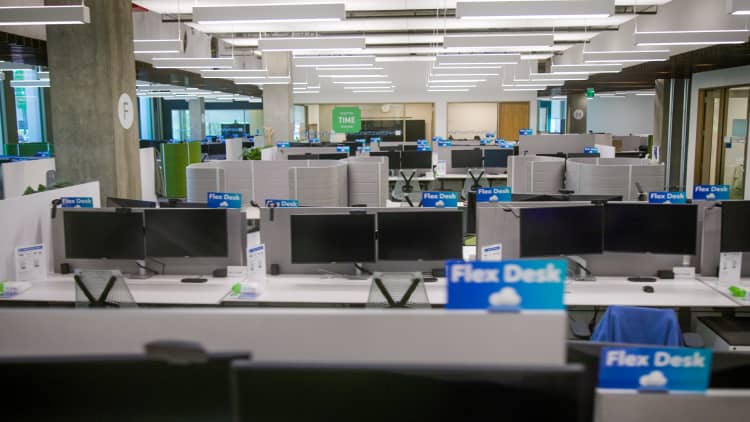When it comes to workplace diversity, equity, and inclusion, it's up to top management to ensure their initiatives create a more positive work environment. However, when it comes to supporting professionals of color and LGBTQ+ talent, coworkers also have a responsibility to their underserved peers: allyship.
Being out at work is stressful for many LGBTQ+ professionals, according to a recent report from LinkedIn that says 47% of out LGBTQ+ professionals feel like they are coming out on a regular basis in the office. This constant anxiety has resulted in 34% preferring to work remotely, as it relieves the in-person stress of disclosing their identity with their coworkers.
Similarly, 40% of LGBTQ+ professionals believes that remote work helps them stay away from potential workplace discrimination based on their sexual orientation & gender identity, like name-calling and micro-aggressions.
Allyship can directly combat this issue and help the office be a more comfortable and safe space for LGBTQ+ workers.
According to the Freedom Forum Institute, a nonprofit organization dedicated to fostering first amendment rights, "an ally is a trusted source for good." They educate themselves on the discrimination and prejudice minority groups face, are willing to listen to other's points-of-view and learn from them, and they vouch for others when necessary.
Drew McCaskill, a LinkedIn career expert, sits at the intersection of being Black and an openly gay executive, and says he's just recently become more comfortable being himself at work.
"I was in my 30s before I was comfortable being an out, Black, gay executive," he tells CNBC Make It. "Racism still exists in corporate America. We dress it up in more palatable terms like 'bias,' but racism exists. It was hard enough to excel at work as a Black man. I felt I had to prove myself in professional spaces before I had the luxury of saying, 'By the way, I'm gay, too.'"
McCaskill says that "identifying an ally, mentor, coach or sponsor can be instrumental in helping you navigate company culture and sometimes difficult situations. They've been there and may know some tips/tricks."
He further reiterates that allyship is essential for workplace belonging, which is important to 75% of LGBTQ+ talent. It's up to colleagues to make sure they're being inclusive to their peers.
"LGBTQ+ professionals say the top ways colleagues can support them in the workplace are by taking a stand if they hear an inappropriate comment, educating themselves with inclusion and anti-bias training, reporting any discrimination they see to HR and by respecting proper pronouns for gender identification," McCaskill says.
McCaskill encourages LGBTQ+ professionals to also be allies to each other by participating in employee resource groups, which foster diversity, equity and inclusion in the workplace by providing support and development for employees sharing the same experience or identity.
A collective effort from executives and colleagues is essential to creating a better environment for LGBTQ+ professionals in, and beyond, the office.
"Employees have more voice and more choice than they've ever had, and there is a new expectation for employers to live their diversity, inclusion and belonging values in ways that impact societal change as well as corporate culture," McCaskill says.
Check out:
An expert's message to Black women burned out at work: 'Workplace DEI is a company issue, not yours'
8 years after her last acting role, Cameron Diaz has 'un-retired'—here's what she's been up to
Black women are in 'survival mode' at work—and company diversity efforts 'fall short'



